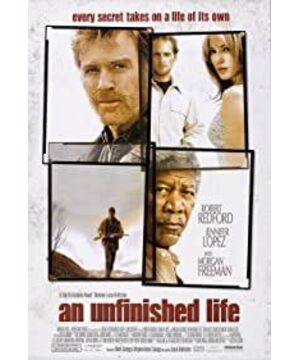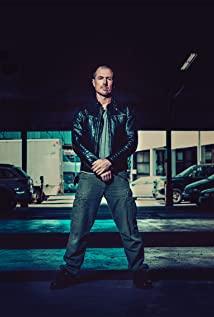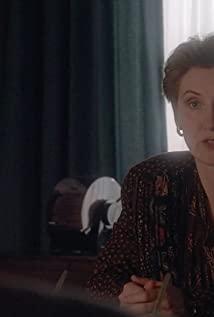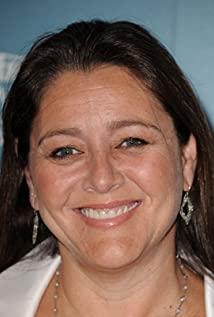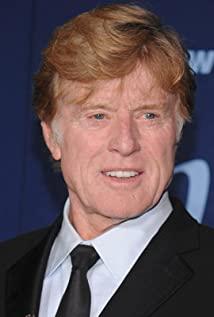The opening scene of the film seems a bit puzzling. Joan avoids the violent boyfriend and takes her daughter to find the old cowboy Ena Gilkson. The two meet and talk in an embarrassing manner. They seem to have had a relationship in the past, but they seem to have some entanglements with each other. Slowly, this history began to emerge. Joan was originally Aina’s daughter-in-law, but his beloved son was killed in a car accident caused by Joan’s driving error. His deep love for his son eventually turned into a hatred for his daughter-in-law, who was cherished at the time. The pregnant Joan also ran away from home in panic, and Ena had never seen his 11-year-old granddaughter Greif. The context of the story is actually very clear, it is a story with a knot in the heart. Many times, in a staggering accident, people will feel pain, guilt, and confusion. Under this kind of emotion, it is inevitable that there will be "hatred" psychologically. "The effect, "hate" is often simple and direct, just like Ena's resentment towards Joan allows him to break free from the more complicated, three-dimensional and deep yearning for his beloved son, to resolve his pain and his guilt, because Once the responsibility was imperceptibly directed to Joan, he also had a clearer emotional vent.
In fact, Ena forgot that although Joan also had her responsibility, it was an unintentional fault. She actually has the same pain and guilt as him, and the other layer of "hate" is that it makes people lose perception. Because of her hatred, Aina cannot perceive that a wife who has lost her husband agrees to deeply miss her husband, and cannot perceive the helplessness of a prospective mother with a child suddenly facing helplessness. As a result, a kind of "hate cycle" appeared. Aina needed to weave a reason for hating himself and give him the power of "hate". Naturally, this emotion made Joan unable to bear, and eventually had to leave home, and this It also gave feedback to Ena the rationality of feeling "hate". A woman who killed her son and left with her granddaughter, shouldn't this be hated? ! This self-created tragedy of "hate" is here, and it creates emotional double-loss, which is embarrassing. Another clue in the film also reveals another piece of "hate", and at the same time it has a contrasting effect on the main line. Aina takes care of the old black cowboy Mitte Bradley in her life, and Mitte was badly bitten by a grizzly bear. , Life has been difficult to take care of himself, and the bear that bit him was also captured and locked in a cage. This clue has two meanings. First, it expresses Aina's essential kindness. This man who looks weird at first and makes things difficult for Joan will also take care of his old friends alone. At the same time, he talks in front of his son's grave. It's also moving. Secondly, it makes the logic of "hate" more fragile. Kumamoto is a fierce animal, and once provoked, he will instinctively make aggressive behaviors. Therefore, you can hardly say that this bear is really "bad", and Mitte did not even directly The complaint of bears, because we understand that this is the instinct of these animals. We are only venting our dissatisfaction because of a wounded mentality. However, on the contrary, we will give birth to a "hate" that lacks tolerance for our kind. Come.
This film did not make this kind of "hate" deeper and deeper, but gave the possibility of forgiveness. On the one hand, Joan's daughter Greif became a buffer between her and Aina. In this girl, Joan They can see their husband, and Aina can see their son, and in the end, their love for her makes them realize that they actually love the same person, this girl, and her father. The more innocent a child is, the more stupid the struggle and sophistication of adults will often be, and the frozen feelings will gradually melt under the warmth of innocence. When Joan’s violent boyfriend came and tried to forcibly bring Joan back, Ena came forward and surrounded Joan. At this moment, we saw that Ena was protecting his family. Since he has lost his son, why bother losing Another relative? They are finally a family again. And Mitte really forgives the bear that he may spend the rest of his life in pain. He let go of the bear. That scene always reminds me of Herzog’s documentary "The Grizzly Man". Treadwell in the movie loves grizzly bears all his life, spends his entire life with grizzly bears in the forest, and eventually loses his life. However, anyone who has watched the documentary will know that he will not blame the bear. People like Treadwell are only a minority after all, but from the moment Mitte released the bear, I felt a kind of conceived emotion, a kind of touching warmth.
The "hate" that angers people in life is often even more a burden. It is essentially a lie. You need to fabricate reasons to hate a person, and weave new lies to circumvent the lie. In the end, a person’s emotions are controlled by yourself. The woven lie is webed, unable to break free, and can only live in pain and resentment. Aina was once tightly bound by the net he woven, and all he got from it was the self-harm that he doubled after losing his beloved son. At the same time, he kept releasing pressure on Joan, making Joan also deeply wrapped in guilt. Once they unload this burden and take a step forward in life, everything is not that heavy. We will miss what we have lost forever. At the same time, we must cherish our relatives and friends. At the end of the film, Joan and the local police officer started With new feelings, Ena and Mitte’s two old friends leaned side by side in the chair. The comfort and warmth made people smile and relaxed.
http://hi.baidu.com/doglovecat/blog/item/4eb8053373dad9f61b4cffe1.html
View more about An Unfinished Life reviews


